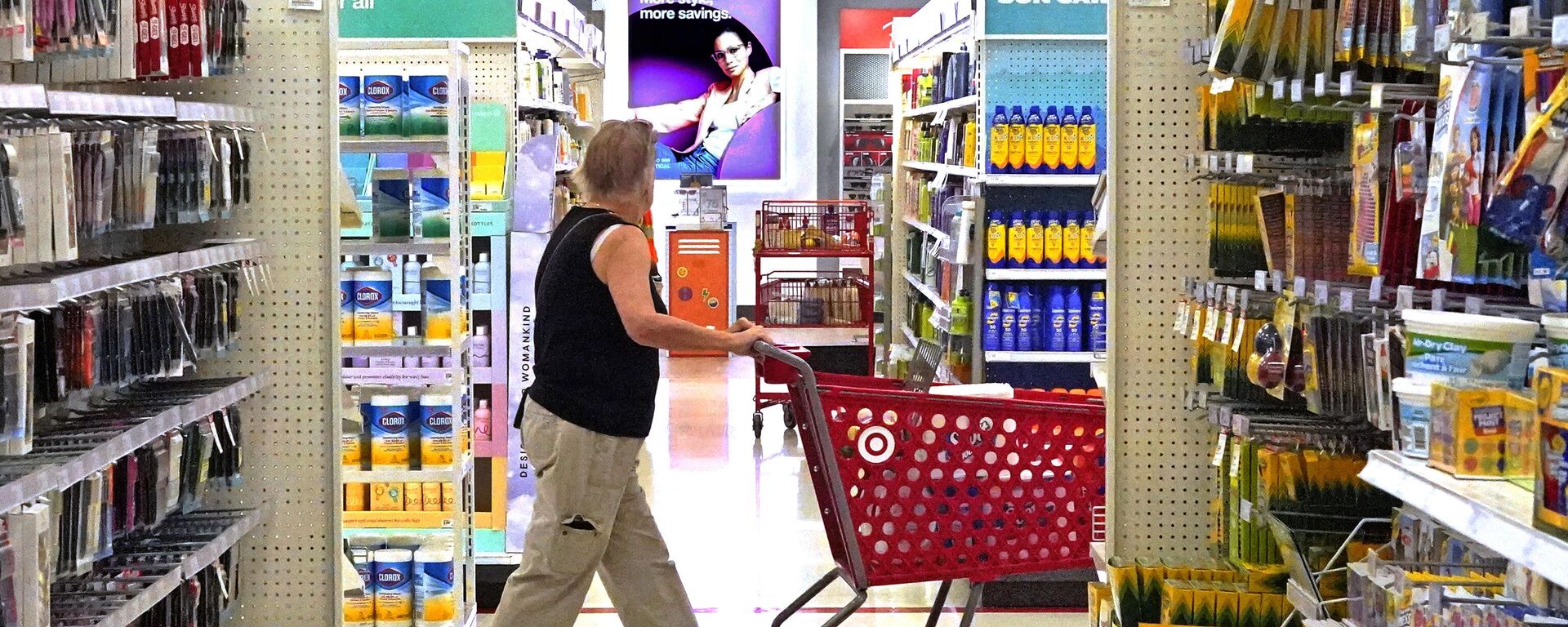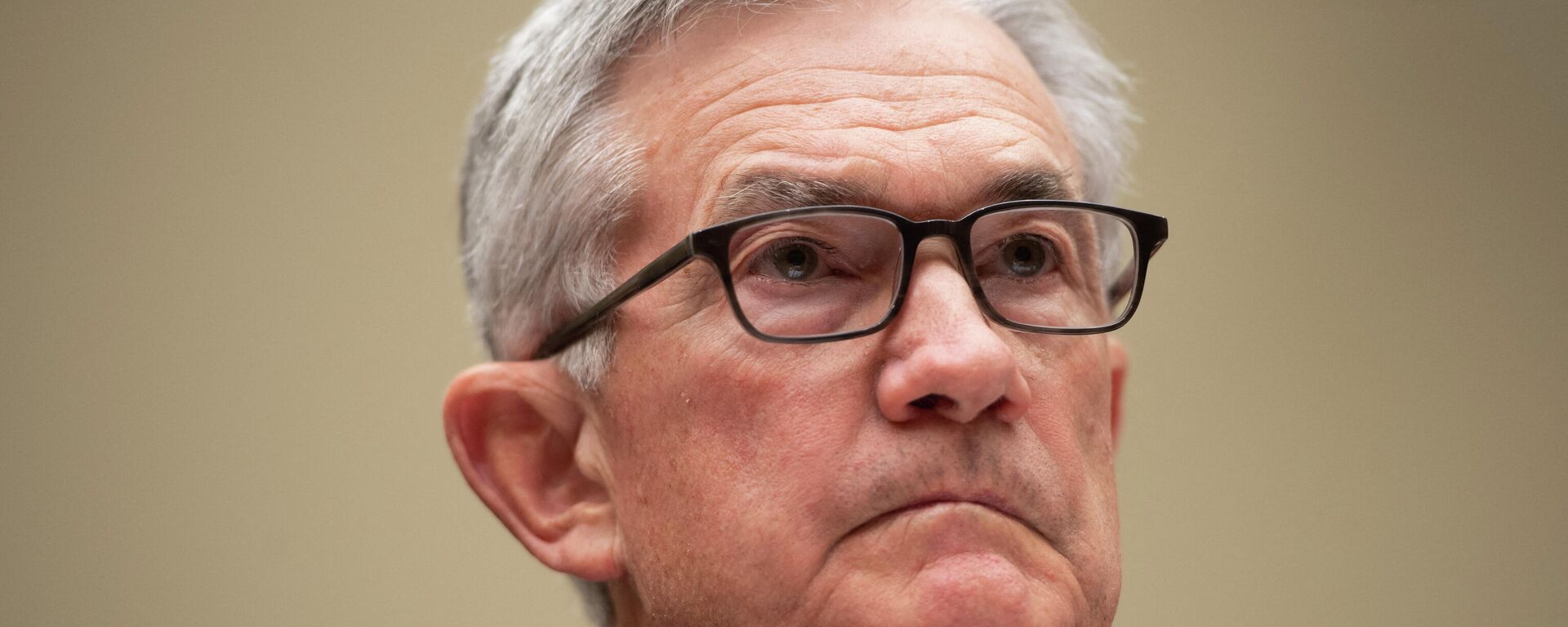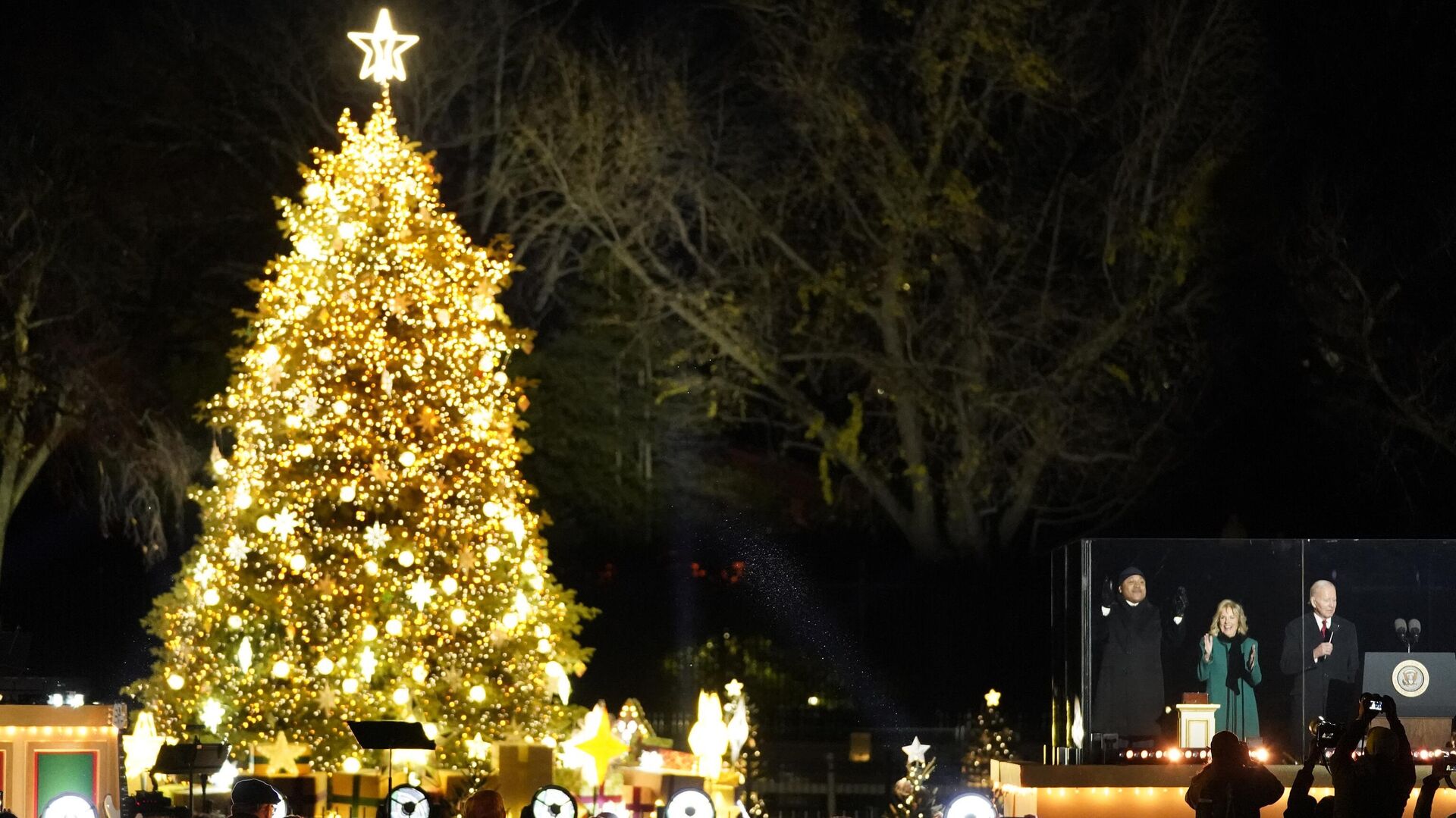https://sputnikglobe.com/20231207/over-half-of-american-shoppers-say-cutting-back-on-holiday-spending-due-to-inflation-1115461575.html
Over Half of American Shoppers Say Cutting Back on Holiday Spending Due to Inflation
Over Half of American Shoppers Say Cutting Back on Holiday Spending Due to Inflation
Sputnik International
Persistent inflation of the US dollar has impacted holiday sales, with a poll showing a majority of shoppers have cut back on end-of-year purchases this year due to price increases.
2023-12-07T19:10+0000
2023-12-07T19:10+0000
2023-12-07T19:08+0000
americas
us
inflation
holiday
shopping
https://cdn1.img.sputnikglobe.com/img/07e7/0b/1d/1115272674_0:161:3071:1888_1920x0_80_0_0_b72fbf5b08c03a005c2bece926333e87.jpg
The study, published by Monmouth University on Thursday, found that 55% of respondents were reducing their purchasing volume during the holidays this year.Of the two answers included in that category, 36% said they were cutting back “a lot” as compared to last year and 19% said they were cutting back “a little.” Some 32% said their holiday shopping was about the same as last year, and 1% said they didn’t know. However, another 12% said they don’t do holiday shopping or don’t celebrate holidays in December.Of those who answered the poll, 89% said they celebrated Christmas, while 7% said they celebrated the Jewish holiday of Chanukah and 5% celebrated Kwanzaa, a secular African-American holiday, and 9% said they didn’t celebrate any of those options.“There could be a number of reasons why more are cutting back this season. Perhaps those who kept to their usual spending habits as we came out of the pandemic are seeing it catch up with them now. Or maybe their budgets are the same, but they are exchanging fewer gifts or buying for fewer people. Whatever the reason, there is greater pessimism on the holiday gift-giving front,” he added.Last month, prior to the official start of the holiday season, Wallethub conducted a smaller online survey of “nearly 250 respondents” and found that while 58% said their holiday spending would be about the same, 34% said they would be foregoing gifts this year due to inflation, although it was unclear if that meant foregoing some gifts or all gifts.Notably, the Wallethub survey found that 47% said they would be giving less to charities this year due to inflation, while 53% said it wouldn’t impact their generosity.The central bank’s primary tool to fight inflation, which is the depreciating value of the currency, is to raise interest rates. While this slows down spending by making borrowing more costly, it can also trigger a rise in unemployment and even a recession. Nonetheless, the Federal Reserve has maintained that its steady rate hikes from March 2022 to July 2023 will still produce a “soft landing” without crashing the economy.The most recent Consumer Price Index (CPI) report available from the US Bureau of Labor Statistics, on data from October 2023, showed inflation of 3.2%, meaning the aggregate prices of basic commodities were 3.2% higher that month than in October 2022. That’s a big decline from the peak inflation of 9.1% in June 2022, but still above the Fed’s goal of 2% inflation.At its most recent meeting last month, the Federal Reserve Board of Governors said that despite the gains, “current inflation remained unacceptably high."
https://sputnikglobe.com/20231113/most-americans-poorer-under-biden-more-than-50-tighten-belt-on-food-poll-shows-1114915869.html
https://sputnikglobe.com/20231108/fed-chair-to-central-banks-economists-think-outside-the-models-with-forecasts-1114826576.html
americas
Sputnik International
feedback@sputniknews.com
+74956456601
MIA „Rossiya Segodnya“
2023
News
en_EN
Sputnik International
feedback@sputniknews.com
+74956456601
MIA „Rossiya Segodnya“
Sputnik International
feedback@sputniknews.com
+74956456601
MIA „Rossiya Segodnya“
how bad is inflation, are people buying less because of inflation, holiday shopping prices
how bad is inflation, are people buying less because of inflation, holiday shopping prices
Over Half of American Shoppers Say Cutting Back on Holiday Spending Due to Inflation
Persistent inflation of the US dollar has impacted holiday sales, with a poll showing a majority of shoppers have cut back on end-of-year purchases this year due to price increases.
The study,
published by Monmouth University on Thursday, found that 55% of respondents were reducing their purchasing volume during the holidays this year.
Of the two answers included in that category, 36% said they were cutting back “a lot” as compared to last year and 19% said they were cutting back “a little.” Some 32% said their holiday shopping was about the same as last year, and 1% said they didn’t know. However, another 12% said they don’t do holiday shopping or don’t celebrate holidays in December.
Of those who answered the poll, 89% said they celebrated Christmas, while 7% said they celebrated the Jewish holiday of Chanukah and 5% celebrated Kwanzaa, a secular African-American holiday, and 9% said they didn’t celebrate any of those options.
“The rate of inflation may be slowing but the damage has been done after a long stretch of rising prices,” Patrick Murray, director of the independent Monmouth University Polling Institute, said in the news release.
“There could be a number of reasons why more are cutting back this season. Perhaps those who kept to their usual spending habits as we came out of the pandemic are seeing it catch up with them now. Or maybe their budgets are the same, but they are exchanging fewer gifts or buying for fewer people. Whatever the reason, there is greater pessimism on the holiday gift-giving front,” he added.

13 November 2023, 10:36 GMT
Last month, prior to the official start of the holiday season, Wallethub conducted
a smaller online survey of “nearly 250 respondents” and found that while 58% said their holiday spending would be about the same, 34% said they would be foregoing gifts this year due to inflation, although it was unclear if that meant foregoing some gifts or all gifts.
Notably, the Wallethub survey found that 47% said they would be giving less to charities this year due to inflation, while 53% said it wouldn’t impact their generosity.
Inflation in the US has been a persistent problem since the global shutdowns at the start of the COVID-19 pandemic in early 2020, which ground societies and economies to a halt. In the delicate economic recovery that followed, Federal Reserve Chairman Jerome Powell tolerated high inflation for fear of harming that recovery if the central bank acted against it - a trend that finally broke in early 2022, when the US recorded its highest inflation rate in four decades.
The central bank’s primary tool to fight inflation, which is the depreciating value of the currency, is to raise interest rates. While this slows down spending by making borrowing more costly, it can also trigger a rise in unemployment and even a recession. Nonetheless, the Federal Reserve has maintained that its
steady rate hikes from March 2022 to July 2023 will still produce a “soft landing” without crashing the economy.
The most recent Consumer Price Index
(CPI) report available from the US Bureau of Labor Statistics, on data from October 2023, showed inflation of 3.2%, meaning the aggregate prices of basic commodities were 3.2% higher that month than in October 2022. That’s a big decline from the peak inflation of 9.1% in June 2022, but still above the Fed’s goal of 2% inflation.

8 November 2023, 20:27 GMT
At its most recent meeting last month, the Federal Reserve
Board of Governors said that despite the gains, “current inflation remained unacceptably high."
"All participants judged that it would be appropriate for policy to remain at a restrictive stance for some time until inflation is clearly moving down sustainably toward the Committee's objective," the minutes from their meeting said, which indicated the central bank might still raise interest rates again before the end of the year.




